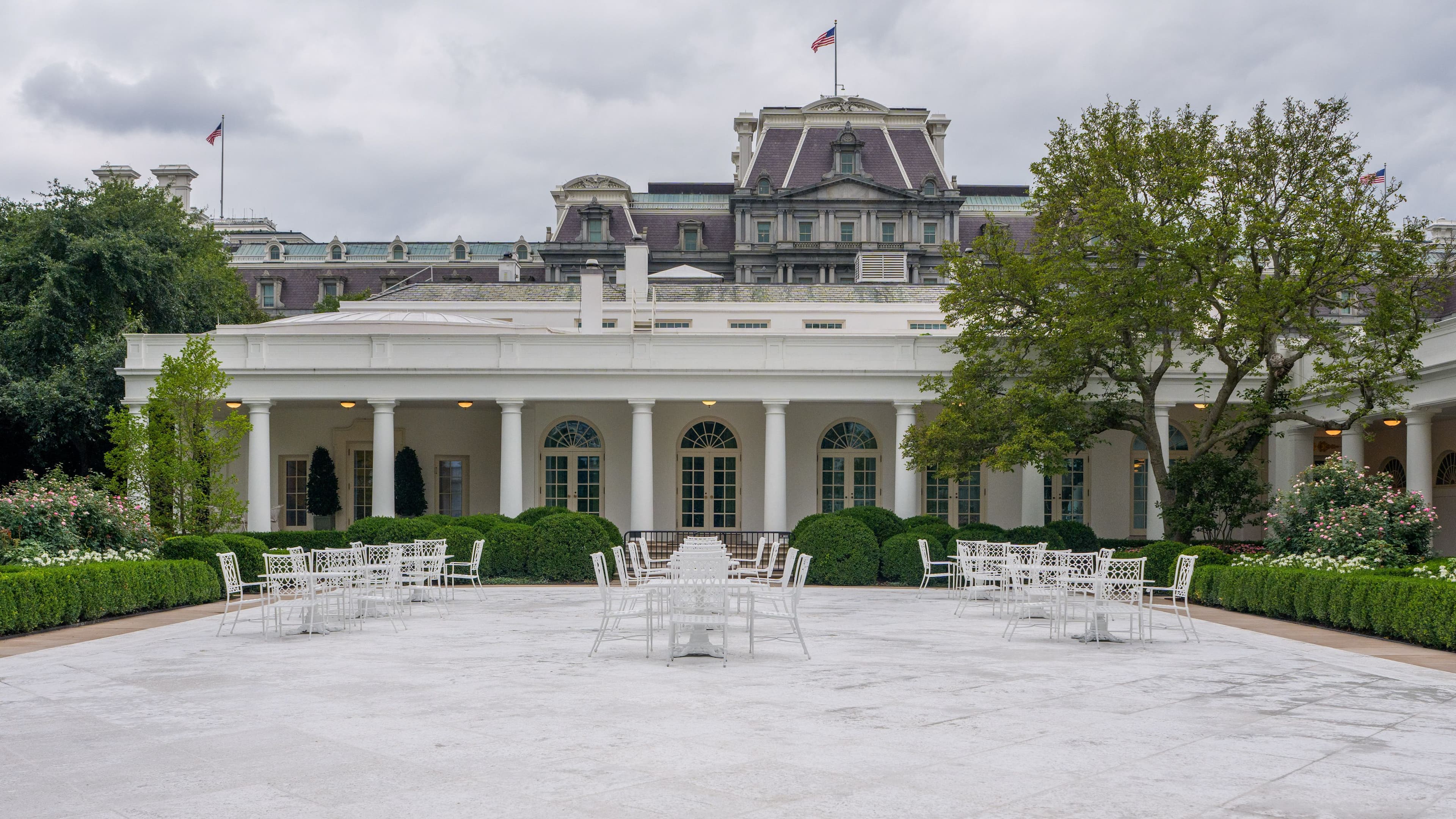White House Rose Garden's Central Lawn Replaced with Stone Patio in Latest Renovation

The White House Rose Garden has undergone its second significant renovation under the Trump administration, with the iconic central lawn now replaced by a stone patio. This latest transformation, completed in July 2025, aims to enhance the garden's functionality for official events, according to White House statements. The redesign has sparked considerable discussion, particularly on social media platforms, regarding its historical and aesthetic implications.
The renovation involved laying Indiana limestone tiles in a diamond pattern across the area previously covered by grass. Solar-powered in-ground lighting was also added, a detail praised by some for its eco-consciousness but criticized by others for altering the historical atmosphere. President Trump referred to the newly paved space as the "Rose Garden Club," intended for various official gatherings and ceremonies.
This 2025 project follows a 2020 redesign overseen by then-First Lady Melania Trump, which included new pathways and plantings. The President reportedly justified the latest change by citing practical concerns, stating that the grass often became wet, making it difficult for individuals, especially women in high heels, to navigate during events. Critics, however, have drawn comparisons between the new patio and the design aesthetic of Trump's Mar-a-Lago property.
The transformation of the historic garden has elicited strong reactions online. One social media user, identified as "Overeducated Gibbon," reacted sharply to the news, stating, "> "this is EXACTLY like the Anschluss. Can't you people see what's happening?!!" This comment reflects the highly charged nature of the discourse surrounding changes to the symbolic White House grounds.
The term "Anschluss" refers to Nazi Germany's annexation of Austria in 1938, a forceful political union achieved through intimidation and military presence. This historical event marked a significant act of aggression by Adolf Hitler, leading to the loss of Austrian independence and widespread human rights abuses. The comparison made in the tweet underscores the user's perception of the renovation as a profound and concerning alteration of democratic norms and symbols.